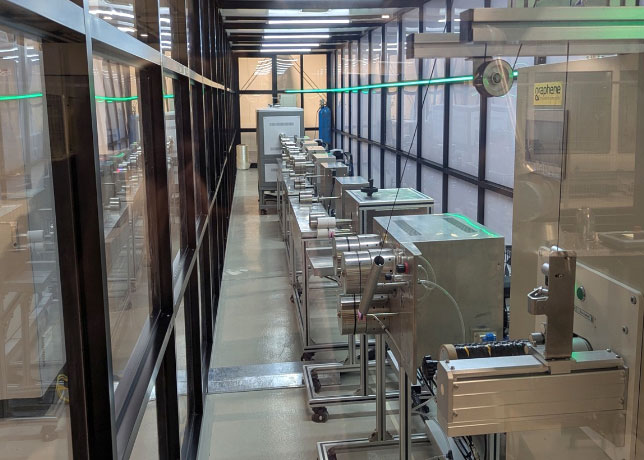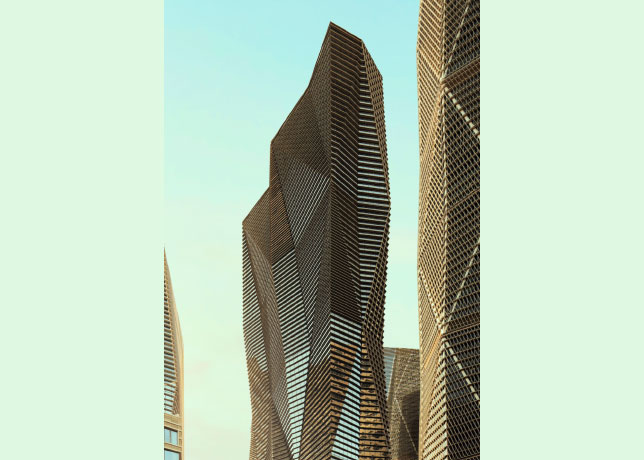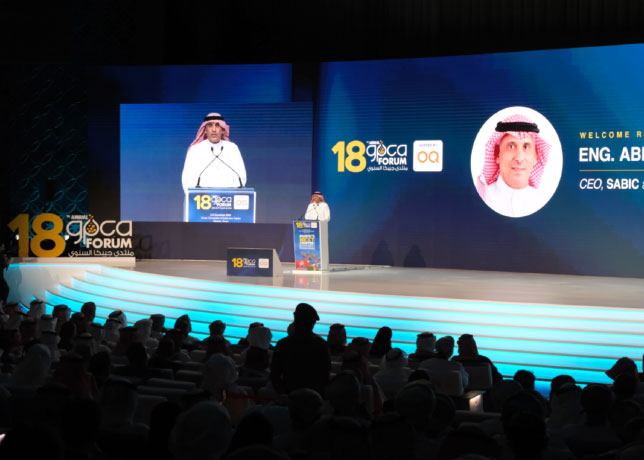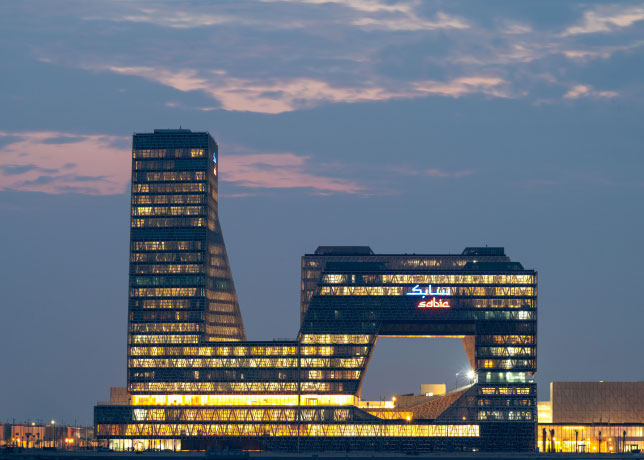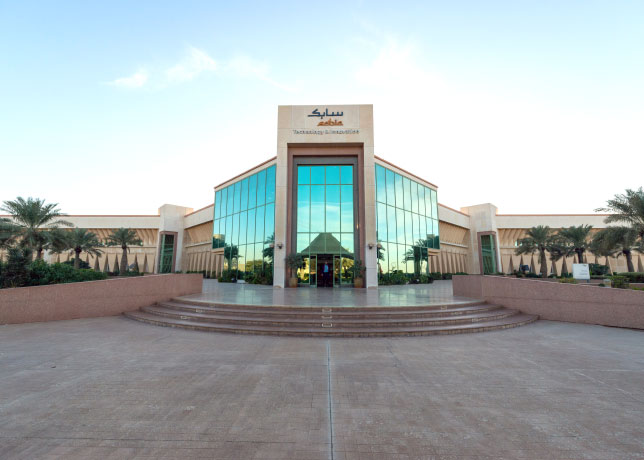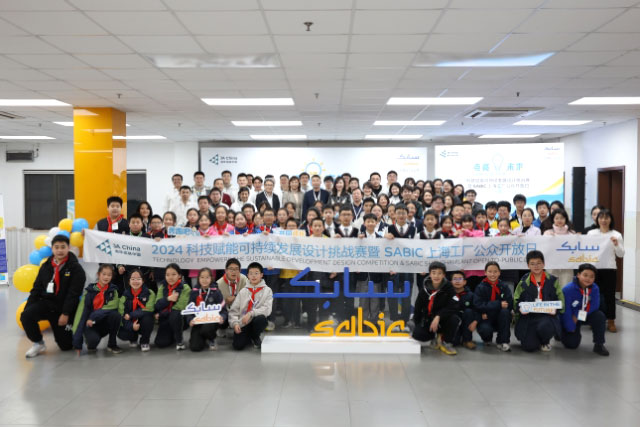
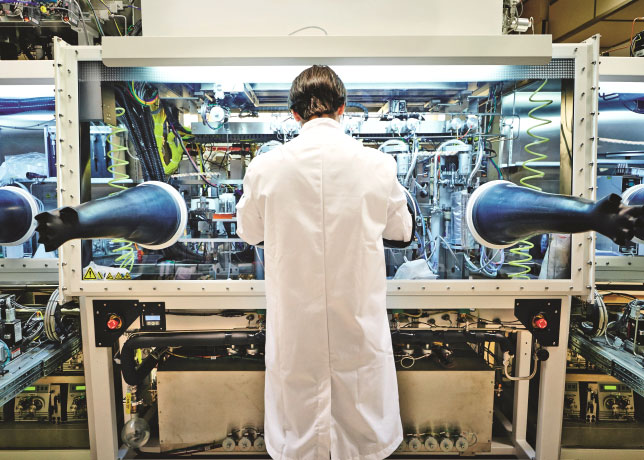 SABIC’s robust R&D ecosystem has produced several breakthroughs aimed at reducing environmental impact
SABIC’s robust R&D ecosystem has produced several breakthroughs aimed at reducing environmental impact
SABIC is pioneering sustainability with circular solutions, carbon neutrality, and community engagement, setting new standards for environmental responsibility and innovation in the global chemicals industry
SABIC, a global leader in the chemicals industry, has established itself as a pioneering force in sustainability, demonstrating how environmental responsibility can coexist with business growth.
With a strategic focus on circular solutions, carbon neutrality, and community engagement, the company’s sustainability efforts are reshaping the chemical industry and positioning SABIC at the forefront of sustainable innovation.
Through advancements in technology, partnerships, and governance, SABIC is not just reducing its environmental footprint but also creating new pathways for future generations to thrive.
EMBEDDING SUSTAINABILITY ACROSS GOVERNANCE & STRATEGY
At the heart of SABIC’s sustainability journey is a governance framework that integrates environmental, social, and governance (ESG) principles into every facet of its operations.
As a signatory of the UN Global Compact since 2012, SABIC has aligned its strategies with the UN Sustainable Development Goals (SDGs), addressing issues such as poverty, climate change, and inequality.
The company’s adherence to the Responsible Care® initiative further underscores its commitment to environmental, health, safety, and security (EHSS) excellence.
These frameworks guide the company’s strategies, ensuring transparency and accountability through third-party certifications and regular performance audits.
SABIC’s sustainability approach is embodied in the RAISE framework – Reputation, Audience, Innovation, Strategy, and Endurance – ensuring that its corporate social responsibility (CSR) and community engagement efforts remain aligned with long-term business objectives.
The framework helps SABIC address community needs while enhancing its brand, fostering shared value, and driving sustainable impact across all sectors of its operations.
Through this model, SABIC also maintains close engagement with key stakeholders, such as governments, investors, NGOs, and local communities.
Periodic materiality assessments ensure that SABIC’s strategies balance the interests of various parties while promoting its sustainability goals.
Central to SABIC’s ethos is the belief that businesses can and should drive positive societal change.
This is evident through the company’s expansive community engagement efforts, which include active participation in 64 operational sites worldwide.
These sites facilitate local collaborations that inform various initiatives, ranging from volunteer programmes to financial support for small and medium-sized enterprises (SMEs) through SABIC’s NUSANED™ programme in Saudi Arabia.
This initiative supports the Kingdom's Vision 2030 by fostering entrepreneurial growth and job creation, while also building strong relationships with local communities.
INNOVATIONS DRIVING SUSTAINABILITY
Innovation plays a pivotal role in SABIC’s sustainability strategy, especially when it comes to addressing environmental challenges.
The company is a leader in developing circular economy solutions, reducing waste, and enhancing resource efficiency.
At the core of this initiative is SABIC’s TRUCIRCLE™ platform, which enables the recycling of materials and the use of renewable feedstocks.
Through this platform, SABIC has already achieved significant milestones, including 18 kilotonnes of certified circular and renewable solutions in 2023.
With a goal of reaching one million metric tonnes by 2030, the company is making substantial strides in transforming waste into valuable resources.
A significant breakthrough in SABIC’s circular economy efforts is its collaboration with BASF and Linde to develop the world’s first large-scale electrically heated steam cracker furnace.
This innovative technology aims to reduce carbon emissions associated with traditional cracking processes, marking a crucial step in SABIC’s commitment to decarbonisation.
Additionally, the company’s investment in chemical recycling technologies, such as the upcoming advanced recycling plant in Geleen, the Netherlands, will significantly increase the production of high-quality recycled materials, reinforcing SABIC’s leadership in sustainable material production.
SABIC’s focus on bio-based materials also highlights its commitment to renewable solutions. In 2023, the company launched bio-based NORYL™ resin grades certified under ISCC PLUS standards.
These materials, which can be used in industries like wind energy, automotive, and construction, are part of SABIC’s broader effort to reduce reliance on fossil fuels and promote sustainable manufacturing practices.
In the realm of packaging innovation, SABIC has made significant progress in creating environment-friendly solutions.
Its collaborations with leading food manufacturers have led to the development of microwaveable bowls made from 25 per cent certified renewable polypropylene.
These sustainable packaging options help reduce plastic waste, providing consumers with more eco-conscious choices.
Moreover, SABIC’s innovations extend to energy production. The company’s carbon capture and utilisation (CCU) technology at its Jubail facility is a prime example of its leadership in reducing carbon emissions.
The facility captures and purifies 500,000 tonnes of CO2 annually, reintegrating the carbon into industrial applications and effectively closing the loop on emissions.
This initiative, alongside SABIC’s investment in low-carbon ammonia production, is central to its broader goal of achieving carbon neutrality.
In 2023, SABIC delivered 5,000 tonnes of certified low-carbon ammonia to India, marking a historic milestone in sustainable agriculture.
COLLABORATION FOR GLOBAL IMPACT
SABIC’s sustainability agenda is not just about internal innovation but also about fostering collaboration with global stakeholders to achieve broader environmental goals.
As a member of the World Business Council for Sustainable Development (WBCSD), the company works alongside other industry leaders to tackle complex sustainability challenges.
SABIC’s partnership with global organisations and local communities enables the company to scale up solutions that address pressing issues like climate change, resource scarcity, and waste management.
The company’s commitment to sustainability extends to its employee base, with comprehensive benefits and training programmes designed to support their well-being and personal development.
Initiatives like the SABIC Scholarship Programme, the TAMHEER initiative, and the Summer Innovation Programme help nurture future leaders while meeting the growing demand for skilled professionals in science, technology, engineering, and mathematics (STEM) fields.
Through these Programmes, SABIC is cultivating a workforce equipped to lead the charge in sustainable innovation.
Employee engagement also plays a key role in SABIC’s community-driven approach. The company actively encourages volunteerism, with employees participating in projects related to health, education, and environmental protection.
This fosters a culture of social responsibility and underscores SABIC’s holistic approach to sustainability, which considers environmental, social, and economic impacts.
TOWARD A GREENER, MORE INCLUSIVE FUTURE
SABIC’s sustainability vision extends beyond reducing its own environmental footprint; it aims to drive positive change across industries and communities globally.
The company’s ambition is reflected in its comprehensive sustainability targets, which include a 20 per cent reduction in greenhouse gas emissions and a 25 per cent improvement in energy and water use efficiency by 2030.
These targets, supported by cutting-edge technologies and strategic partnerships, position SABIC as a leader in driving the transition to a low-carbon economy.
In 2023, SABIC’s ESG performance received a significant boost, with its ESG score on Bloomberg’s ESG Data Index increasing by 39 per cent.
This achievement highlights the company’s ongoing commitment to transparency and accountability in all aspects of its operations.
As the company continues to innovate and collaborate with global partners, SABIC is setting a new standard for what it means to be a responsible corporate citizen.
By embracing circular economy principles, pioneering low-carbon technologies, and fostering ethical governance, SABIC is paving the way for a more sustainable and inclusive future.
Its holistic approach to sustainability not only addresses urgent environmental challenges but also ensures long-term value creation for its stakeholders.
As SABIC’s journey continues, its vision of "Chemistry that Matters" serves as a powerful reminder that profitability and purpose can and should go hand in hand in the pursuit of a greener, more sustainable world.
By Abdulaziz Khattak







































































